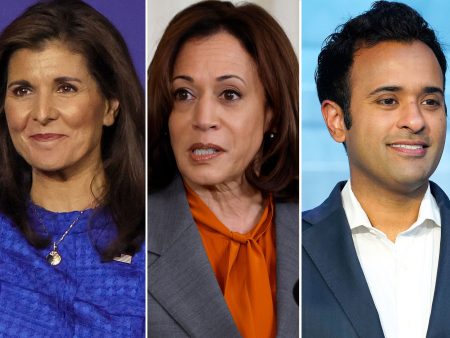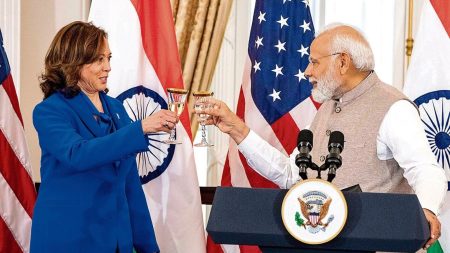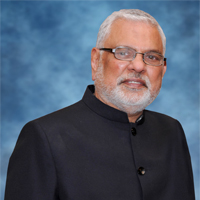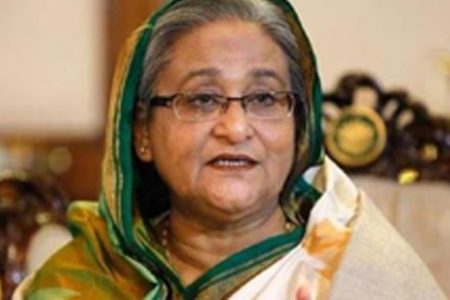“This is not the time for war.” PM Modi to Putin
Prime Minister Narendra Modi’s recent trip to Russia has made headlines, signaling a pivotal moment in the diplomatic ties between India and Russia. As global tensions continue to simmer, Modi’s visit underscored the significance of dialogue and cooperation in today’s volatile geopolitical landscape.
During his visit, PM Modi reiterated a powerful message: “This is not the time for war.” In a world where conflicts have wrought unimaginable devastation, Modi’s words resonate as a call for peace and diplomacy. His discussions with Russian President Vladimir Putin were not just about strengthening bilateral relations but also about addressing global concerns. Modi expressed deep anguish over the casualties of war, particularly the tragic deaths of children. He poignantly remarked, “My heart bleeds,” capturing the human cost of conflict and the urgent need for a resolution.
The emphasis on humanitarian concerns, alongside strategic and economic discussions, reflects India’s balanced approach to international relations. Modi’s diplomacy highlights India’s role as a peace advocate, urging nations to resolve disputes through dialogue rather than warfare. This approach aligns with India’s long-standing tradition of non-violence and its contemporary aspirations to play a constructive role on the global stage.
India is navigating a complex international environment while strengthening ties with Russia. The collaboration between these two nations, with their shared history and mutual interests, could pave the way for new avenues of cooperation in technology, defense, and trade. Modi’s visit is a testament to India’s commitment to fostering partnerships that promote peace, stability, and progress. As we reflect on this significant diplomatic endeavor, it is imperative that we support efforts that prioritize humanity and the collective good over discord and destruction.
Embracing India’s Role as a Global Peace Mediator
During PM Modi’s recent visit to Moscow, the United States emphasized India’s potential to mediate peace between Russia and Ukraine, as well as between Israel and Palestine. This recognition reflects India’s evolving role on the global stage. With its historical non-aligned stance and deep-rooted commitment to diplomacy, India stands uniquely positioned to foster dialogue and reconciliation.
PM Modi’s leadership, marked by a balance of pragmatism and visionary statesmanship, aligns with the complex demands of these conflicts. India’s emphasis on peaceful coexistence and its successful navigation of diverse internal dynamics offer a model for conflict resolution. By leveraging its diplomatic ties and cultural connections, India can indeed pave the way for enduring peace.
The global community’s confidence in India’s ability to mediate underscores a pivotal moment. It is an opportunity for India to reinforce its legacy as a beacon of peace, exemplifying the transformative power of dialogue and understanding in a fractured world.
The landmark visit to Austria
PM Modi’s landmark visit to Austria marks a pivotal moment in India’s diplomatic history, bridging a four-decade gap since Indira Gandhi’s historic trip in 1983. Following a strategic visit to Russia, PM Modi’s arrival in Vienna underscores India’s commitment to fostering stronger international ties.
This visit is not merely symbolic; it is a deliberate step towards enhancing bilateral relations and exploring new avenues for cooperation. PM Modi’s meetings with Austrian President Alexander Van der Bellen and Chancellor Nehammer initiated significant developments in various sectors such as infrastructure, renewable energy, and high technology.
PM Modi’s engagement with the Indian community in Vienna and the business leaders’ summit highlight a multifaceted approach to diplomacy, intertwining economic, cultural, and geopolitical threads.
Embracing India’s Economic Ascent
On a world economic front, India stands on the cusp of a transformative decade, as highlighted by Morgan Stanley’s report, “The New India: Why this is India’s decade.” Several key factors, including offshoring, increased manufacturing investments, energy transition, and advanced digital infrastructure, are propelling the country’s trajectory towards becoming the world’s third-largest economy and stock market by 2030.
On a recent trip to Moscow, PM Modi said, “When I came here in 2015, I had said that the 21st century will belong to India. Today, the world is saying this. Today, India is giving new confidence to the world. India’s growing capabilities have given hope for stability and prosperity to the whole world.
Geopolitical shifts and the COVID-19 pandemic have accelerated the move towards a multipolar world, reinforcing India’s strategic importance on the global stage. As US-China trade tensions and the Ukraine conflict reshape global economic dynamics, India’s proactive policies, including reduced corporate taxes and production-linked incentive schemes, are boosting its competitiveness.
While challenges remain, India’s large population, strategic alliances, and robust policy framework position it to emerge as a formidable global power. As we embark on this promising journey, it is imperative to harness these opportunities to drive inclusive and sustainable growth, ensuring that India’s ascent benefits all its citizens.

 Editor-in-Chief
Editor-in-Chief







